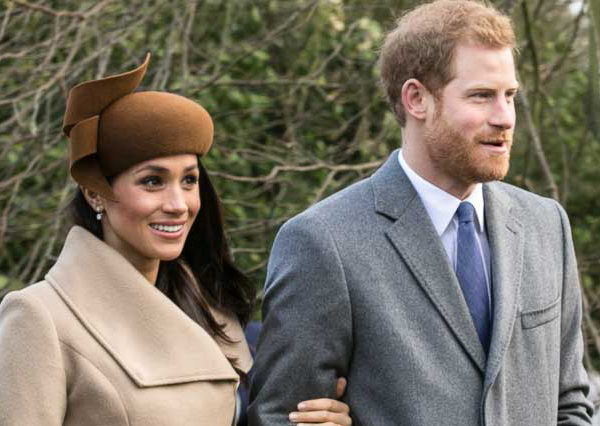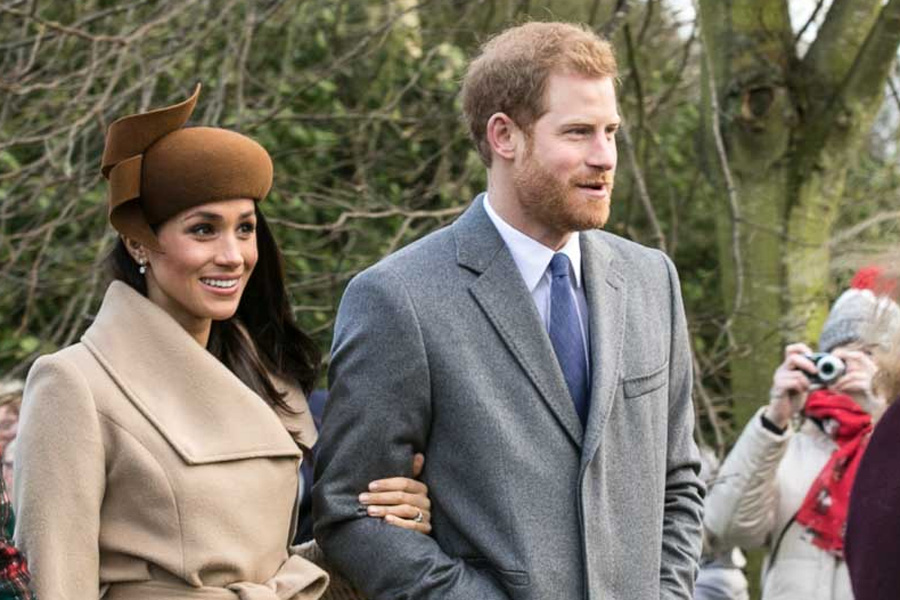Following Prince Harry and Meghan Markle’s decision to step back from royal life, Dr William Ackah from the Department of Geography reflects on the media discussion around the couple’s decision and the nature of institutional racism in Britain.
Meghan’s Blackness has lost its sparkle even quicker than I originally envisioned when I wrote an initial comment piece shortly after the royal wedding. As I alluded to at the time and reiterate here, the sparkle of Meghan’s Blackness could not last because at its core Britain is an institutionally racist country. From time to time the country wraps itself in multicultural garments of convenience like at the wedding, but as soon as Black people dare to question or challenge the multicultural facade, the garments come off and the nakedness of the faded empire’s racism is revealed.
The role of broadcast media has been pivotal in this regard. For the most part a multiracial cast of commentators have debated on various magazine and news programmes as to whether Meghan’s treatment has been racist. On the surface the debates seem fair, however a deeper dive reveals the deep-seated institutionalised racism of this form of broadcasting. Whether it is Andrew Neil, Andrew Marr, Robert Peston, Kay Burley, Victoria Derbyshire, Good Morning Britain, Politics Live, Newsnight, Question Time etc, etc all the permanent presenters, and regulators of the debates on these shows are White and the Black people that appear are temporary. White dominated media institutions make decisions about what is discussed, when it is discussed, how it is discussed and by who. Black people by contrast, have no control and are only invited to comment in highly contested spaces about our predicament. Even in these hostile spaces, in scenes straight out of Kafka, White males complain that they cannot speak about race and are victims of racism! This lets us know in no uncertain terms that there is very limited space to discuss on our own terms what it means to Black and British in this country.
As I have watched and read the debates surrounding the issue of royalty and race what has struck me is the stark difference between White British and Black British experience. White Britishness or to probably be more precise White Englishness exudes a sense of permanent entitlement within the fabric of British public life. Whereas Black Britishness even though it has a longer historical presence in Britain than whiteness (e.g. cheddar man) is seen as temporary. Black Britons have no permanent markers of presence in British institutional life, no public memory of our long- term citizenship. As in the current debate we appear and then disappear until the next episode of race and celebrity, race and violence, race and underachievement, race and music, race and sport, race and discrimination, race and culture generates enough controversy to merit a re-appearance. When we protest and insist that institutional racism in Britain is real and therefore Britain and its institutions need to change, then we are told once again to shut up and be grateful to live in the best multicultural society in the world. (thanks so much White people for reminding us we are so privileged!)
What the treatment of Meghan Markle (the tip of a huge underwater iceberg) exemplifies is that there are limitations to Black British citizenship. Ours is a transactional citizenship based on what we are perceived to contribute to the nation. That being the case I think it is time for the British State to be honest and to take appropriate action. In key areas where we are treated differently and adversely, we should be compensated, where the State provides us with a higher-level service than the wider community we should pay more. This should be the transactional basis of our citizenship until equality has been achieved.
For example, Black British citizens should pay a reduced TV license, as we don’t receive the same benefits from public broadcasting as does the wider society. We should pay less for university tuition, as it has been clearly demonstrated that universities provide a poorer service to Black students, so it stands to reason that we should pay less or receive compensation for services not rendered.
More broadly Black citizens should pay a reduced income tax. I can’t think of any institution in Britain that is maintained directly or indirectly by the taxes that Black British citizens pay that has provided a service to Black citizens that is equal to or better than what it provides to its White citizens.
Black British Citizens have cleaned your bums, manned your transport and done the jobs you did not want to do. In response we take abuse and experience racism from the terraces to the boardrooms to the classrooms. Living in an institutionally racist society has been and is a material and existential threat to our positive well-being in this society. So please no more TV debates framed by White privilege, shut up and pay up until genuine equality is achieved.
William Ackah is Lecturer in Department of Geography, Chair of the Transatlantic Roundtable on Religion and Race .


